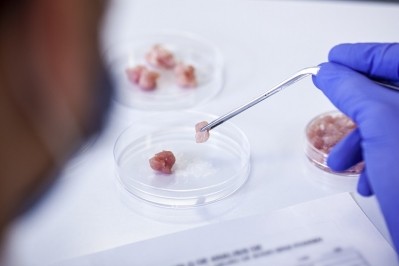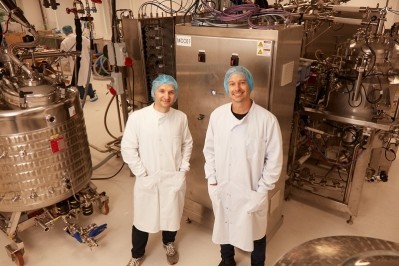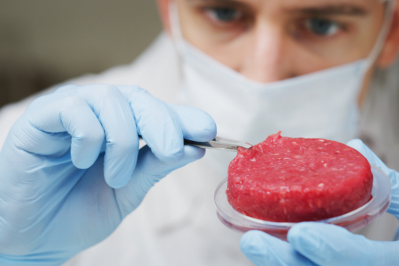WATCH – Down on the cultured meat farm with Ivy Farm Technologies
Oxford University spin-out Ivy Farm Technologies is making cultivated minced meat products from real animal cells. Starting with pork, the start-up has since diversified into beef – both Angus and Wagyu varieties.
Although a highly technical process, the idea behind it is ‘quite simple’, CEO Richard Dillon told FoodNavigator deputy editor Oliver Morrison on a recent visit to Ivy Farm HQ. “If you take a cutting of a plant, and put it in the right atmosphere, give it the right nutrients and water, it will grow another plant.”
Producing cultivation meat is a somewhat similar process, he explained. The company takes primary stem cells (either muscle or fat cells) from an animal and identifies the 0.001% of those cells capable of growing outside of the animal. “We then train those cells to be able to grow nutritious and delicious meat in fermentation tanks.”
Of course they won’t grow in the fermentation tanks without nutrition, which comes in the form of growth medium. Temperature and flow dynamics within the fermenter and optimised, and ultimately a biomass is produced.
The whole process, from thawing the cells through to meat production takes just two weeks. Compared to traditional animal agriculture for beef for example, that’s more like two years.
While Dillon claims the taste is ‘identical’ to the real thing, the texture is not yet identical without a little help from plant-based ingredients. Traditional minced meat is made up of multiple cell types, which helps create flavour. Ivy Farm is producing just one cell type, and so is adding in texture post-production with fillers and texturisers to make cultivated burgers, meatballs and gyozas.
Producing just one cell makes the production process more efficient. And from a sustainability perspective, this is key. Looking at meat production in terms of plant calories in compared to protein calories out, conventional meat production is inefficient, the CEO suggested. For cows, the ration is 25-50 plant calories in to get 1 flesh calorie out. “It’s super inefficient. You wouldn’t accept that in any other industry.” Pork is slightly more efficient with 15 calories in for 1 calorie out, and chicken is around 7 calories in for 1 calorie out.
“At our pilot plant, we can do between 3-4 calories in for 1 out,” he revealed, adding that the company aspires to optimise the process even further to achieve 2-3 calories in for every 1 calorie out.
But in order to truly benefit the environment, Ivy Farm must reach the masses. The company has yet to receive regulatory market approval.
Steps are underway, having submitted a dosser to the UK Food and Safety Authority (FSA) earlier this year. To hedge its bets, the company is also in talks with the US and Singapore.
“We would like to be approved in the US in 2024 and I would hope the UK is just as fast, or just behind that.”
Watch the video for the full interview between Ivy Farm Technologies CEO Richard Dillon and FoodNavigator deputy editor Oliver Morrison.
GettyImages/Mindful Media


























